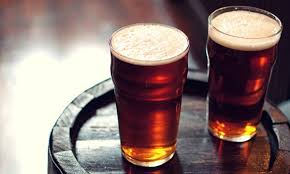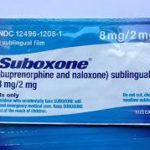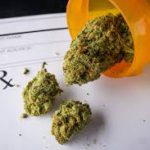…by Jenny Valentish…
Not everyone enjoys the label ‘sober’. I personally don’t call myself an ‘alcoholic’ or ‘identify as an addict’. I’m also far too English to use a dramatic phrase such as ‘in recovery’.
 In my book, Woman of Substances: A Journey Into Addiction and Treatment, I don’t call myself ‘sober’ either, partly because the term reminds me of ‘sombre’, ‘sob,’ and ‘so boring’, but also because, since stopping drinking eight years ago, I’ve taken drugs. I ate a hash cookie at a dinner party; a
In my book, Woman of Substances: A Journey Into Addiction and Treatment, I don’t call myself ‘sober’ either, partly because the term reminds me of ‘sombre’, ‘sob,’ and ‘so boring’, but also because, since stopping drinking eight years ago, I’ve taken drugs. I ate a hash cookie at a dinner party; a  psychedelic in the spirit of self-exploration; and then there’s been silly, teenage stuff for the ridiculousness of it – a whiff of amyl nitrite in the red light district of Paris, a balloon of nitrous while watching Twin Peaks. This freedom was a decision I made after two years of total abstinence, and it’s about joyous bursts, rather than the grinding self-medication of yesteryear.
psychedelic in the spirit of self-exploration; and then there’s been silly, teenage stuff for the ridiculousness of it – a whiff of amyl nitrite in the red light district of Paris, a balloon of nitrous while watching Twin Peaks. This freedom was a decision I made after two years of total abstinence, and it’s about joyous bursts, rather than the grinding self-medication of yesteryear.
Personally, having that pressure-relief valve feels safer to me. Telling myself ‘you can if you want’ doesn’t provoke the imp in my brain into leaping for the chandeliers because, as we all know, being given permission to do something immediately takes away the appeal. By contrast, telling myself I’m abstinent for life might result in an almighty blowout one day as the pressure builds. No system is infallible.
 There will be people reading this with anger burning in their heart. To someone who is truly sober, my generous ‘you can if you want’ policy borders on betrayal. I know how that feels. I remember when a couple who had quit drinking told me that they’d each had a beer at a wedding, and reported with pleasure that they
There will be people reading this with anger burning in their heart. To someone who is truly sober, my generous ‘you can if you want’ policy borders on betrayal. I know how that feels. I remember when a couple who had quit drinking told me that they’d each had a beer at a wedding, and reported with pleasure that they  didn’t enjoy the beer and now they knew they didn’t need to wonder about it again. I felt an inexplicable fury. For me, alcohol was an absolute no-go zone; never worth risking. So that was the root of my rage: they’d made a decision that had worked out just fine for them, but it threatened my new blueprint for life.
didn’t enjoy the beer and now they knew they didn’t need to wonder about it again. I felt an inexplicable fury. For me, alcohol was an absolute no-go zone; never worth risking. So that was the root of my rage: they’d made a decision that had worked out just fine for them, but it threatened my new blueprint for life.
Whatever your personal policy, drug and alcohol treatment shouldn’t be one-size-fits-all – and it isn’t, if you spend a little time investigating the options.
While some people classify as hardcore poly-drug users, most people have a leaning towards one type, such as sedatives, or stimulants. As a pertinent example, I’ve interviewed Marc Lewis, and he told me, ‘I don’t imagine I could continue moderate use of opiates, but a drink is okay for me because it’s not my drug of choice.’
 Bill Wilson, the co-founder of Alcoholics Anonymous, quit drinking in the thirties but experimented with LSD with Aldous Huxley in the 1950s. He even hoped LSD could prove to be beneficial to those in recovery. These days, debates rage on recovery forums as to whether opioid replacement therapy is
Bill Wilson, the co-founder of Alcoholics Anonymous, quit drinking in the thirties but experimented with LSD with Aldous Huxley in the 1950s. He even hoped LSD could prove to be beneficial to those in recovery. These days, debates rage on recovery forums as to whether opioid replacement therapy is  okay for NA members, or whether a ‘marijuana maintenance plan’ is acceptable when attending AA. In fact it might make sense to go to an outpatient drug and alcohol service and collaborate on a plan that includes, say, moderate pot use in the service of quitting methamphetamine (this option is already available in the UK and Australia).
okay for NA members, or whether a ‘marijuana maintenance plan’ is acceptable when attending AA. In fact it might make sense to go to an outpatient drug and alcohol service and collaborate on a plan that includes, say, moderate pot use in the service of quitting methamphetamine (this option is already available in the UK and Australia).
Geoff Corbett is a senior clinician who works with young adults in Brisbane, Australia. He tells me this:
There are always going to be outliers that AA and NA can put on a pedestal, but there will be another thousand people that AA and NA won’t work for, which is why we [in Australia] provide options. If we work from our harm-minimization framework, abstinence can be at one end and safer use can be at the other end. The client chooses options in between. It requires good assessment and really good treatment planning to look at achievable goals and put some parameters into place. We keep in mind that a person’s life is in flux and we can move the goalposts any time we want.
Australian dry-community website Hello Sunday Morning also has a flexible approach to tackling alcohol use. Founder Chris Raine has this to say:
Nowhere do we dictate what a person has to do to be a part of Hello Sunday Morning. Our wording – ‘reassessing your relationship with alcohol’ – turns it into a subjective experience. Even government campaigns in Australia are starting to use that kind of wording, and that’s a good cultural shift. It’s not about ‘Are you an alcoholic? Are you addicted or not?’ It’s about ‘What relationship with alcohol would you like?’ It could be none; it could be some.
Certainly for some people, abstinence is the only safe option – and they know that. There’s a spectrum of severity, and I can’t compare my former levels of dependence to, say, those of the brother of a friend who died after continuing drinking post-liver transplant, or those of my mate who winds up in a hospital or psych ward every time she drinks.
The most important thing is to accept that mistakes, lapses, relapses, busts, lessons, errant evenings, experimental breaks – whatever you want to call them – are statistically likely, no matter what route you choose. That means maintaining vigilance for old behaviors creeping back in, whether it’s six months, five years, or twenty years after you’ve curtailed your habits. Vigilance, purposefulness, meaningfulness, curiosity, goals and altruism – they’re your new stash. Keep them close.
For more about Woman of Substances, go to the Amazon page or the author’s website.

Leave a Reply